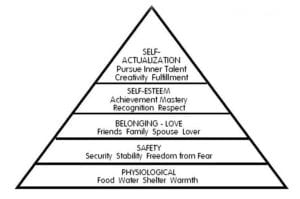We’ve all described friends and colleagues by summing up their
personality type. “You know he/she is a _______ type person. While I don’t
believe in putting anyone into a specific box (we are all of course
individuals), I am quite fond of using the True
Colors assessment when teaching
students and clients about mentoring. True Colors provides a truncated version
of the respected Myers-Briggs instrument giving insight into personality type.
Personality
type is a major talking-point in the organizational behavior field. Human resource management and
career development professionals often find personality assessments to be
really helpful when working with clients. I used this recently with my Legg
Mason clients and they seemed to get a lot out of it.
When it comes to mentoring personality types have been oddly
overlooked or undervalued. Understanding the core facets of personality type
can go a long way towards building a successful mentoring relationship.
What is your personality type? It only takes about
10 minutes to complete the instruments and participants generally find
themselves sorted into one of four types:
1) Orange is the color of artisans and adventurers. Orange
people are playful, spontaneous, and fun. They value competition, variety, and
action. They feel stressed by routine, strick rules and slow anything! Oranges
might be perceived as irresponsible, flaky and not serious enough. In terms of
leaders, Richard Branson seems like a great example of an Orange personality.
Another guess is Greg Mortenson (author of Three Cups of Tea and founder of
Central Asia Institute).
2) Gold are the Guardians. They stabilize us and help to keep us
from living in a state of disorder. They prefer to do things in an orderly
fashion. They are dependable, responsible, and get it done right and on time. Their
stress points are lack of punctuality, slackers and messiness. They are often
perceived as controlling, dull and rigid. Many leaders and CEO’s are Gold. My
guess is that President Barak Obama is a Gold personality types.
3) Blues are idealists and harmonizers. Their desire is for
everyone to get along. Value, harmony and beauty are important to them. They do
not like arguments, dishonesty or a lack of communication and connection. Blues
can be perceived as weak and overly emotional. Although I have not had the
pleasure of meeting her in person, my guess is Oprah Winfrey is likely a strong
Blue. (and yes, I am a Blue so perhaps a bit partial to this color).
4) Greens are both rational and visionary. They often have an
innovative spirit and believe fully in their own competence. And often they do
in fact have the answers. Greens are usually intelligent and have deep
knowledge and passion about their subject matter. They get stressed by less
intelligent people, overemotional people and general incompetence. Greens do
not suffer fools lightly and can be perceived as arrogant. I suspect Steve Jobs
was a strong Green.
I am of course simplifying personality types quite a bit. People can be a
combination of these types and because the True Colors sorts people into four
categories, the finer complexity that one would expect in a more sophisticated
instrument like Myers Briggs is not present here.
Match-ups matter in mentoring, so if you have a mentoring
partner with a different “color” should you be worried? Yes and no. Differences
are good because they stimulate dialogue and increase understanding but they
must be addressed so here is a short primer:
If your mentoring partner is Orange:
-Lighten up, appreciate their humor and jokes
-Allow some time for irreverence and letting off steam.
-Provided unstructured structure
-They are probably socially adept and have high emotional intelligence- think about how you can learn from and build on those strengths.
-Lighten up, appreciate their humor and jokes
-Allow some time for irreverence and letting off steam.
-Provided unstructured structure
-They are probably socially adept and have high emotional intelligence- think about how you can learn from and build on those strengths.
If your mentoring partner is Gold:
-Be aware of the importance of time and planning.
-Be sure that you are attentive to their need to organize and control
-Understand that Golds like rules and structure so consider that in coaching conversations.
-Be aware of the importance of time and planning.
-Be sure that you are attentive to their need to organize and control
-Understand that Golds like rules and structure so consider that in coaching conversations.
If your mentoring partner is Blue:
-Spend some time getting to know them. Ask about the small things.
-Ask their opinion on interpersonal issues.
-Be calm about critical feedback but be careful of the tendency to avoid it because you fear their emotional reaction.
-Capitalize on the harmonizing skills of the Blue by allowing them to be the “good cop.”
-Spend some time getting to know them. Ask about the small things.
-Ask their opinion on interpersonal issues.
-Be calm about critical feedback but be careful of the tendency to avoid it because you fear their emotional reaction.
-Capitalize on the harmonizing skills of the Blue by allowing them to be the “good cop.”
If your mentoring partner is Green:
-Provide logical explanations and data to support your claims.
-Be clear, precise and linear in your communication.
-Appreciate their ideas and leverage their passion and vision.
-Provide logical explanations and data to support your claims.
-Be clear, precise and linear in your communication.
-Appreciate their ideas and leverage their passion and vision.
And lastly,
remember that there is no good or bad color. So what “color” should your mentor
or protégé be? Understand the differences and it will all work out just fine.













